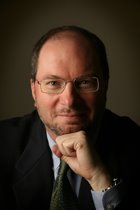Jamie Barton "a revelation" in Met Opera's NORMA
Georgia-native mezzo-soprano Jamie Barton, who makes her Spivey Hall recital debut on Sunday, November 17, 2013 at 3 PM, stepped in as scheduled to sing the role of Adalgisa in the Metropolitan Opera's production of Bellini's Norma. Writing for The New York Times, Zachary Woolfe (clearly a fan of this opera) had glowing words of praise in his review:
Even more of an improvement on the previous cast — a revelation, really — is Ms. Barton...as Adalgisa, Norma’s acolyte turned romantic competition.
Even more of an improvement on the previous cast — a revelation, really — is Ms. Barton...as Adalgisa, Norma’s acolyte turned romantic competition.
Ms. Barton, who won the BBC Cardiff Singer of the World competition in June, has a big, rich voice from the top to the bottom of its range. Singing her first major role at the Met, she entered on Thursday with joyful seriousness and clarity of purpose, tenderly reaching toward the chains of mistletoe left at the altar from the Druids’ rites. In her aching aria, “Deh, proteggimi, o Dio,” she seemed actually at prayer, a private moment on which the audience spied.
Jamie Barton is a singer whose career is strongly on the rise, and an artist not to miss. Her Spivey Hall recital program includes works by Purcell, Brahms, Sibelius, and Ives, plus Sir Edward Elgar's sumptuous Sea Pictures. If you don't have tickets, don't wait -- they're available now from the Spivey Hall Box Office (678) 466-4200 or online.

